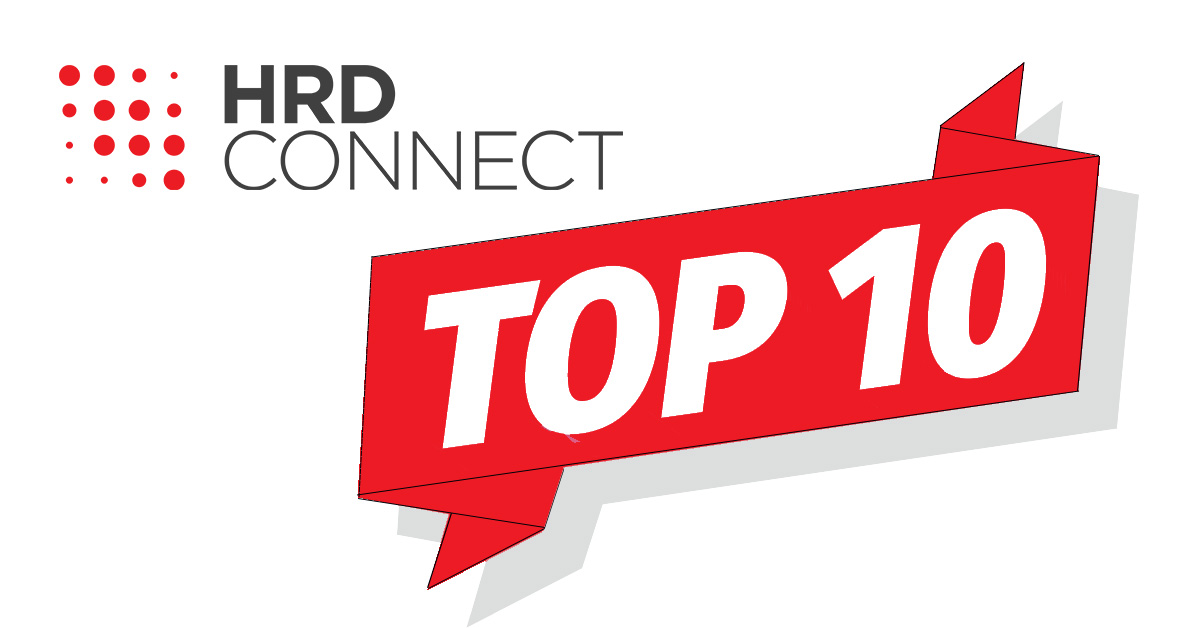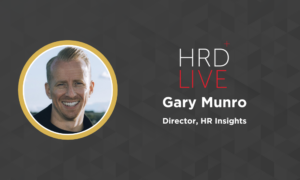HRD Best of 2019: Culture and Engagement
- 6 Min Read
As 2019 comes to a close, we look back at the top 10 culture and engagement articles, podcasts and interviews of the year.
- Author: Michael Hocking
- Date published: Dec 23, 2019
- Categories

What a year it’s been for People Leaders across the globe. Businesses have become more aware of HR’s strategic value in business, effective corporate social responsibility and purpose have become key to talent attraction, employee engagement and corporate culture, and inclusion has gone beyond quotas and keynote sessions, to discussions around whether unconscious bias is a ‘get-out-of-jail-free card’ and stronger initiatives supporting the business value of a more diverse workforce.
With 2019 winding down to a close, we’ve taken a look back over the months to cherry pick the most inspiring articles, interviews and podcasts, featuring our incredible roster of thought leaders and contributors, about culture and engagement. Enjoy!
Josh Bersin: ‘Let’s stop talking about Soft Skills – they are Power Skills’
“I’ve lived in this world for three decades and to be honest, this distinction is now getting in our way. Why? Because most people think “hard skills” are hard, and “soft skills” are soft.
I’d suggest the opposite is true.”
The skills we typically think of as ‘soft’ are the skills that will define our success. Why? Josh Bersin explores the importance of ‘power skills’.
Anouk Geertsma on Uber’s journey to a new a new culture
“We have come a long way since the challenges we faced in 2017 and have worked hard to reform our culture from the ground up and the top down. Our ultimate goal is to make Uber the best place to work, where everyone feels safe, respected and inspired.”
Ahead of her appearance at the HRD Summit EU at the RAI Amsterdam, June 19th-20th, Anouk Geertsma spoke to HRD Connect about the hard times of the past for Uber, and the brighter future ahead.
Georgiana de Noronha, Kraft Heinz, on creating a culture that matters
Georgiana de Noronha, President Northern Europe, Kraft Heinz, discusses her journey as a People Leader, why culture matters to her and Kraft Heinz, the culture initiatives she has brought into being, the remarkable effects those decisions have had on her workforce, and much more.
John Hackston on how self-awareness can transform your organisation
John Hackston, Head of Thought Leadership, The Myers-Briggs Company, sat down with Michael Hocking to discuss the negative impact that a lack of self-awareness has at work, the psychology of leadership, why greater diversity and inclusion at every level of business is an imperative for success, and more.
Reetu Sandhu PhD on how to care for your bosses
“Managers play a critical role in organizations. In fact, nearly all employees say their immediate managers matter the most for well-being support at work. When it comes to the employee experience, managers are key to showing authentic care and supporting the whole employee. And a good manager can make the difference between employees choosing to stay or leave.”
Our focus is so often on taking care of employees – but what about bosses? Reetu Sandhu PhD, Manager, Limeade Institute, tells you how to look after bosses, and why doing so is crucial to organisational success.
Sheela Mackintosh-Stewart on dating in the workplace
“Most adults will spend a third of their life at work, so it is only natural that we develop friendships, crushes or even fall in love. In fact, more than 57% of employees have admitted to being involved in a workplace romance and one in five people will meet their partner at work.
Whilst there are many success stories, take Michelle and Barack Obama or Melinda and Bill Gates for example, we have all heard of those horror stories where colleagues have had to move job following a bitter breakup.”
What’s the best way for HR to deal with inter-office dating? Matrimonial Consultant and Family Lawyer Sheela Mackintosh-Stewart explores the approach companies should take to intra-office dating.
Janine Truitt on psychological safety: the next frontier of worker safety
“The mind is something altogether different. It isn’t quite tangible. It appears to be a wily place that we try to understand through engagement surveys, but that is seemingly out of reach. We know it’s there. After all, it’s the mindset of the employee that likely caused you to hire them in the first place; so isn’t it interesting that we don’t often take the due care to safeguard the other essential part of your most important company asset? Like the physical body, the mind can also deteriorate and/or become fatigued creating other occupational and mental health concerns at work when it is suppressed or fed to unhealthy work conditions regularly.”
Why should you make psychological safety a workplace priority? Janine Truitt, Chief Innovations Officer, Talent Think Innovations and HRD Thought Leader, examines the urgency of psychological safety as a cultural imperative.
Didier Elzinga, Culture Amp, on the importance of constant feedback
Didier Elzinga discusses the importance of workplace culture and a constant feedback loop for organisations, and how this can positively impact a workforce. Didier also explores adding performance to engagement, and what that means in terms of both individual and company development, as well as touching upon his previous career moves and what the future holds for culture.
Shiva Rajgopal on how HR leaders can develop corporate culture
“It’s up to HR to show that corporate culture isn’t just a support function, but that it’s central in driving productivity of the company – which in my view, is as important as finance.”
Put simply, corporate culture can make or break an organisation. Long-considered a critical ingredient for success by HR teams, more and more senior executives are now also recognising its undeniable importance. This week, we were fortunate enough to speak to Shiva Rajgopal, the Kester and Byrnes Professor of Accounting and Auditing at Columbia Business School; a true expert on corporate culture.
John Hackston on why we bother with engagement
“If you’ve read more than a few HR or L&D articles or blog posts, it’s likely that the topic of ‘engagement’ has come up. Engaged employees, who understand their job role and how this fits with their organization’s values, purpose and objectives, are willing and able to give their best at work. It’s not surprising therefore that many organizations see engagement as a way to build performance. In a recent survey[i] of 25,000 business leaders, employee engagement was rated as one of the top three factors driving bottom-line results.”
Come on, managers, is it really worth it? John Hackston, Head of Thought Leadership, The Myers-Briggs Company, makes a case for engagement as a management priority.








